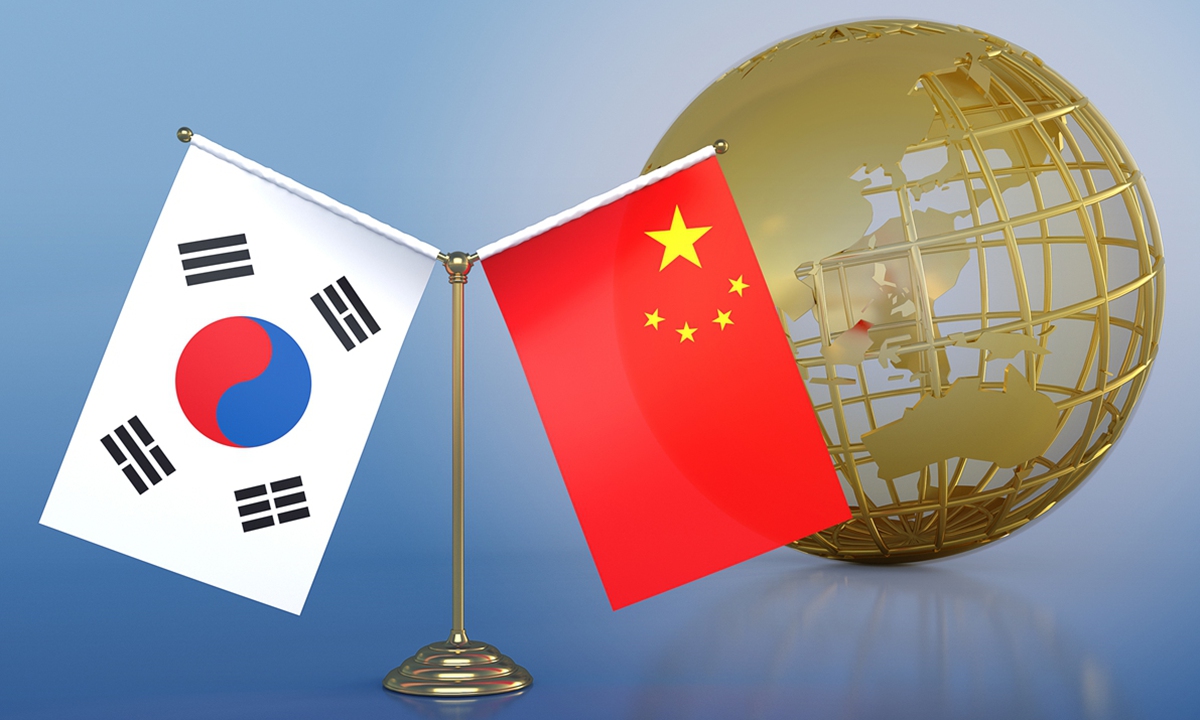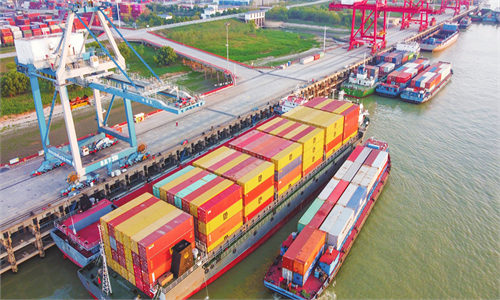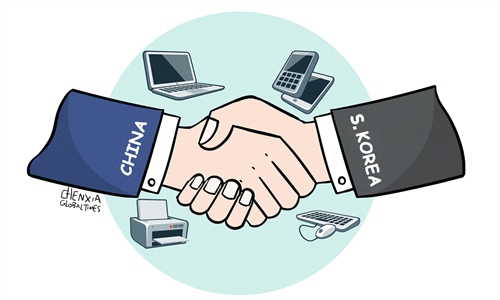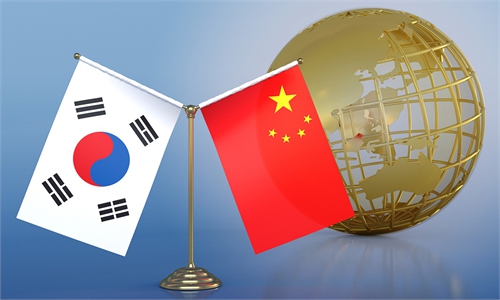Chinese premier calls for deepening China-S.Korea cooperation
Representatives urge joint efforts to ensure stable supply chains

China South Korea Photo:VCG
Chinese Premier Li Keqiang said at a China-South Korea business dialogue on Monday that China and South Korea should jointly maintain the stability and smooth flows of regional and global industrial and supply chains and further expand economic and trade cooperation by completing talks for an upgraded bilateral free trade agreement.
At the third China-ROK Entrepreneurs and Former High-level Officials Dialogue, representatives from both sides also called for further strengthening bilateral economic and trade cooperation, in clear rejection of the US' attempt to pressure South Korea into "decoupling" from China, especially in high-tech sectors such as semiconductors.
In his speech at the event via video link, Li said that China is ready to work with the ROK to uphold a good neighborly friendship, mutual respect and equal treatment, and to promote the sound and steady development of bilateral ties, leveraging their complementary strengths and deepening cooperation in fields such as high-tech manufacturing, the green economy and big data.
China remains committed to its basic state policy of opening-up, and will open its domestic market further, protect the rights and interests of foreign investors, foster a market-based and law-based international business environment, and encourage fair competition among all types of enterprises, Li said.
"China welcomes companies from all over the world, including the ROK, to continue to expand cooperation with China for greater mutual benefit," the premier said, while urging both sides to strive to conclude the second phase of China-ROK Free Trade Agreement (FTA) negotiations at an early date.
Also on Monday, Chinese Foreign Minister Wang Yi held a video meeting with his South Korean counterpart, noting that US deeds such as passing the CHIPS and Science Act have evidently damaged the legitimate rights and interests of countries including China and South Korea and that countries should jointly reject such anti-globalization mindset and unilateral hegemony.
While the US has been stepping up pressure on South Korea to join its so-called "Chip 4" alliance and other moves targeting China, there is also growing consensus between China and South Korea on further pursuing pragmatic cooperation instead of "decoupling," analysts noted.
Lü Chao, an expert at the Liaoning Academy of Social Sciences, said that although the US government has been forcing the South Korean government to pick sides between China and the US in certain fields, especially the high-tech sector, it is believed that both the political and business circles in South Korea have realized that it will not be beneficial for South Korea to "decouple" from China, destroy the existing supply chain and completely follow the US.
At the dialogue on Monday, representatives from the two countries also noted that the two countries should continue to explore new areas of cooperation. Some called for the two countries to make good use of the Regional Comprehensive Economic Partnership (RCEP) to jointly explore third-party markets and ensure the security, stability and smooth flow of global industry and supply chains.
Following the business dialogue on Monday, the Korea Chamber of Commerce and Industry and the China Center for International Economic Exchanges - the cohosts of the dialogue, issued a joint statement calling for exploring new directions for cooperation as well as pushing bilateral relations toward more mature and healthy development.
It is in the common interests of China and South Korea to strengthen economic and trade cooperation, Li Tianguo, associate professor of the National Institute of International Strategy of the Chinese Academy of Social Sciences, told the Global Times on Monday.
Specifically, the second phase of the China-ROK FTA talks, which mainly focus on the opening of services and investment, are both in line with China's opening-up policy but could also provide more opportunities for South Korean companies in the Chinese market, according to Li Tianguo.
China and South Korea are steadily taking efforts to enhance economic cooperation on issues like the FTA talks, and progress has been achieved at an orderly pace.
In July, a spokesperson of China's Ministry of Commerce said that China and South Korea had made substantial progress in second-phase FTA talks. The spokesperson noted that the two countries had carried out nine rounds of formal negotiations as of then.



